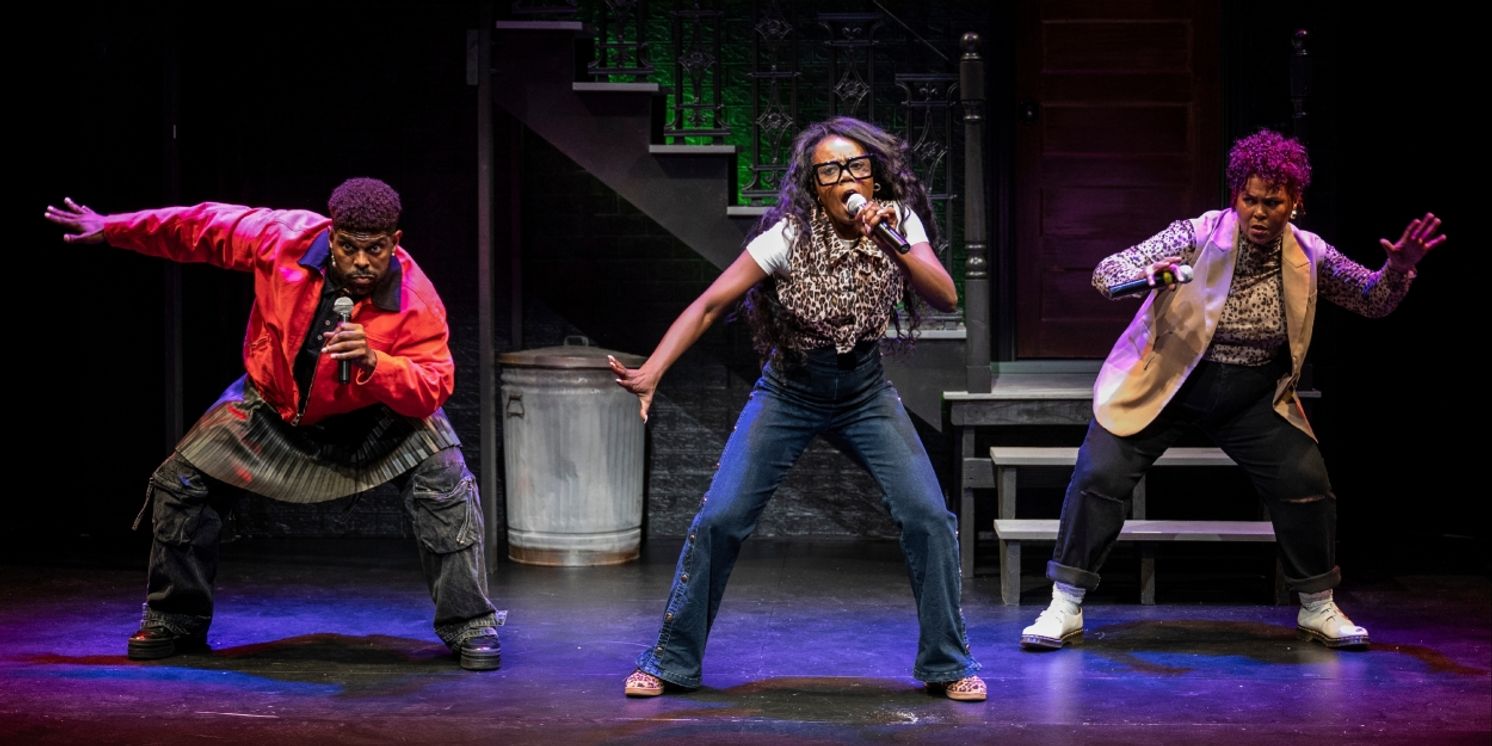Review: THE SECOND CITY: DANCE LIKE THERE'S BLACK PEOPLE WATCHING at Woolly Mammoth
A string of sketches and very little improv from Chicago troupe

The latest Second City production at Woolly Mammoth aims to bring “Black joy” in the tradition of its past successes there, such as 2016’s “Black Side of the Moon.” That show came to D.C. on the teeth of a dispiriting election, as does the new one, “Dance Like There’s Black People Watching.”
So, on a set that resembles a D.C. streetscape of townhouses, with faded posters of the 9:30 Club and Trouble Funk, the cast of six immediately addresses the elephant in the district right away, in white masks and ominous blocking — though its content reveals it to be the last minute addition it apparently was.
A more emphatic statement is made following a series of one-liners that seem like stereotyping, that Black culture is not a monolith. Done in quick hits as if a “Laugh In” segment, with heads popping out of windows and trapdoors, it might have landed very differently had there been a different setting or cast.
First presented in a different form in Chicago early last year, the sketches got some liberal sprinkling with local references to place it in D.C.
Fast moving and quick changing, there’s a good spotlight provided for each of the spirited cast before it’s all over, with standouts that included the big-voiced Breon Arzell who also provided the show’s impressive choreography.
Tiny in stature, Arlieta Hall had a big role in a number of roles and showed strong vocal skills.
Howard University senior Julius Shanks II added youth and local representation to the Chicago cast and had a good moment in a Black therapy sketch with Tamieka Chavis. Max Thomas was a formidable presence in each of his scenes, none more than in the scene of a man busting into a Frito-Lay corporate headquarters at his wits end because the number of chips in each bag has been reduced.
And Jillian Ebanks benefitted from a looser style that likely came from a career in standup comedy. A line about her mother caused her to pause and laugh since here mother was actually in the audience opening night.
While most of the sketches are likely the results of past improv sessions, the work itself allowed surprisingly little time for new improvisation with the audience. But owing to the title, yes, a white man was chosen from the first row to stand on a pedestal and dance, such as it was. Before that, though, he was in for a bigger indignity — up on a slave block in a topsy-turvy world. The turnabout was meant to teach an obvious lesson, but the broad strokes weren’t entirely necessary.
In a year that has already seen the sturdier collection of sketches in George C. Wolfe’s “The Colored Museum” at Studio, the pieces in “Dance Like There’s Black People Watching” seemed comparatively lighter and dashed off. And like a lot of “Saturday Night Live” sketches, they seemed light on their endings. Instead, the lights (designed by Colin K. Bills, who also did the sets) went black at the appointed climax and things move to the next scene. Director Rob Wilson certainly kept things moving throughout.
Running time: About two hours with one 20-minute intermission.
Photo credit: Breon Arzell, Arlietta Hall and Tamieka Chavis in the Second City’s “Dance Like There’s Black People Watching” at Woolly Mammoth. Photo by Teresa Castracane.
The Second City’s “Dance Like There’s Black People Watching” continues through Dec. 22 at the Woolly Mammoth Theatre, 614 D St NW. Tickets available online.
Reader Reviews
Videos

